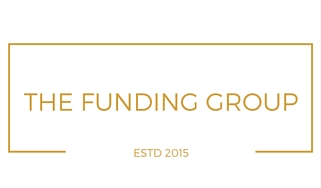Mortgage interest rates have remained steady despite interest rates being at historic lows. It may be a good idea to refinance, which gives you an opportunity to get a new loan for your home and repay the old one.
There are a variety of factors and things you should think about before making a decision. But it comes down to this: Can refinancing help you save money?
To see if refinancing can help you save money, here are the questions.
- Are mortgage interest rates now lower than they were when I took out my home loan?
- How has my credit rating changed since I received my current mortgage?
- Is my house worth more today than it was when I took out my mortgage?
If you answer “yes” to all or any of these, it is possible to refinance at a great time!
Refinance: Benefits
Refinancing can offer you more attractive loan terms than what you currently have.
Your monthly payments will be lower if you have a lower interest on the same amount of your mortgage. You can also lower your monthly payments if you have paid off the loan.
Higher credit scores will increase your chances of getting a better interest rate.
Refinancing can also be a great way to access cash from your home equity.
You may be eligible to refinance if your home’s value has increased since your last mortgage was issued. A cash out refi will allow you to obtain a new loan and cash at closing using the equity in your house if you are eligible.
This could allow you to pay off high-interest debts (such as credit card debt), improve your home, or even pay for tuition.
Loan terms to consider when refinancing
Lending Period
Refinances, shortening, or prolonging the loan term are all options. These are just a few of the many types of home loans.
15 Year vs. 30 Year
The fixed-rate mortgage will have a monthly payment that is predictable for the entire loan term. The length of the loan has an impact on the monthly payments, the amount of interest paid, the time it takes for equity to build up, and the time it takes the loan to be paid off.
Fixed-rate mortgages can be either 15-year or 30-year.
- A 15-year mortgage will cost you more monthly than a 30-year mortgage. However, the upside is that you’ll pay less interest over the term of the loan. Your home will build equity faster and the mortgage will be paid off sooner. If you are in your peak earning years (late 40s to late 50s), and can afford higher monthly payments, refinance to a 15 year loan to pay off the mortgage on your home before you retire.
- Because they are spread over a longer period, 30-year mortgage payments have lower monthly payments than 15-year mortgages. A loan with a shorter term will cost you more interest, take longer to build equity, and be paid off. For the monthly affordability, many people choose a 30-year mortgage. Low monthly payments can also provide security and long-term financial stability to manage the changes in life without having to lose one’s home.
Adjustable-rate Mortgage
Home loans can also be offered adjustable rate mortgages. This type of loan, depending on its terms, will have a fixed rate for a short time. It can be 1, 5, 7 or 10 years before the rate adjusts to the current interest rates.
A featured rate at the beginning of the loan term may allow borrowers to buy higher-end homes than they would with a fixed rate loan. However, the loan can prove to be costly if interest rates rise dramatically. This may mean that homeowners will need to refinance as soon as the rate changes.
Balloon Mortgage
With its low monthly payments, a balloon mortgage may tempt a borrower into getting a larger loan and a house that is more expensive than they expected. Be careful.
A balloon mortgage has a shorter term than traditional mortgages, and it is almost interest-only.
The entire loan term ends and the mortgage becomes due in one lump sum.
A balloon mortgage is usually a temporary solution. This type of loan is extremely risky so many people need to refinance the balloon mortgage before it becomes due.
FHA Loan Refinance
Refinance your FHA home loan to reduce your monthly payments. A FHA Streamline Refinance allows you to quickly get a loan while still retaining the FHA-qualifying low-interest benefit.
Refinancing is limited by the guidelines. There are also costs associated with refinancing.
Refinance: Things to Think About
Refinance must be done six months after you’ve received a mortgage. Refinancing is not just about interest rates. There are also costs involved in getting a loan.
Refinancing will be similar to the process you used for your first mortgage. This includes closing costs and fees.
Here’s how to determine if refinancing is worth the cost.
Break-even point: When cost equals savings
You’ll need to determine your break even point. This is the point at which you can spend money on saving money. After you reach that break-even point you can start saving.
This formula works like this: Loan costs divided Monthly savings equals number of months to break even. Here’s an example.
Refinances can help you save $150 per month on your mortgage payments. You also pay $3000 closing costs and fees to obtain the loan. It will take 20 months for you to break even (300/150 = 20). Refinancing will save you money as long as your plan is to remain in your home for at least 2 years (24 monthly). Refinancing may not be the best option if you don’t plan to stay in your home for at least two years (24 months).
Every homebuyer’s situation will be different, so it is best to discuss it with an expert. Capital Bank can help you refinance your home loan by providing you with a qualified, experienced loan originator.
What do I need to refinance ?
Are you ready for a refinance of your mortgage? These are the documents that a Beverly Hills Mortgage Broker will need to see:
- Proof that you have income: Paystubs, W-2/1099 forms, and two years worth of tax returns
- Proofs of assets: Home ownership documents, current home value, bank accounts and investment/retirement accounts
- Credit report
- Statements on Debt: Credit card statements, car and school loans, other loans/debt
- Current mortgage statement
FAQs Refinance
Does refinancing hurt my credit?
Credit bureau Experian says that refinancing can temporarily lower credit scores due to credit checks, multiple loan requests, and closing an old mortgage account.
What is the process of mortgage points?
Lenders may offer to lower your interest rate by paying Mortgage points. Each point is worth 1% of the amount that you borrowed. While buying points will increase closing costs, could save you money over the long-term by lowering your monthly payments. You can perform the math by clicking here.
What is a Cash-Out Refinance?
When you take out a larger loan than your home loan, a cash-out refinance occurs. You receive the difference in loan amounts as a cash payment.
What is a Cash-In Refinance?
A cash-in refinance occurs when a borrower brings cash to the table to reduce their mortgage amount. This could be done to avoid mortgage insurance, to get a lower rate of interest, or to qualify for the refinance.
Is it possible to refinance a VA loan
The U.S. Department of Veterans Affairs permits a VA home loan refinance in order to lower monthly payments or make payments less volatile (e.g. replacing an adjustable-rate mortgage by one with fixed-interest). Eligibility and loan requirements must be met by applicants.

